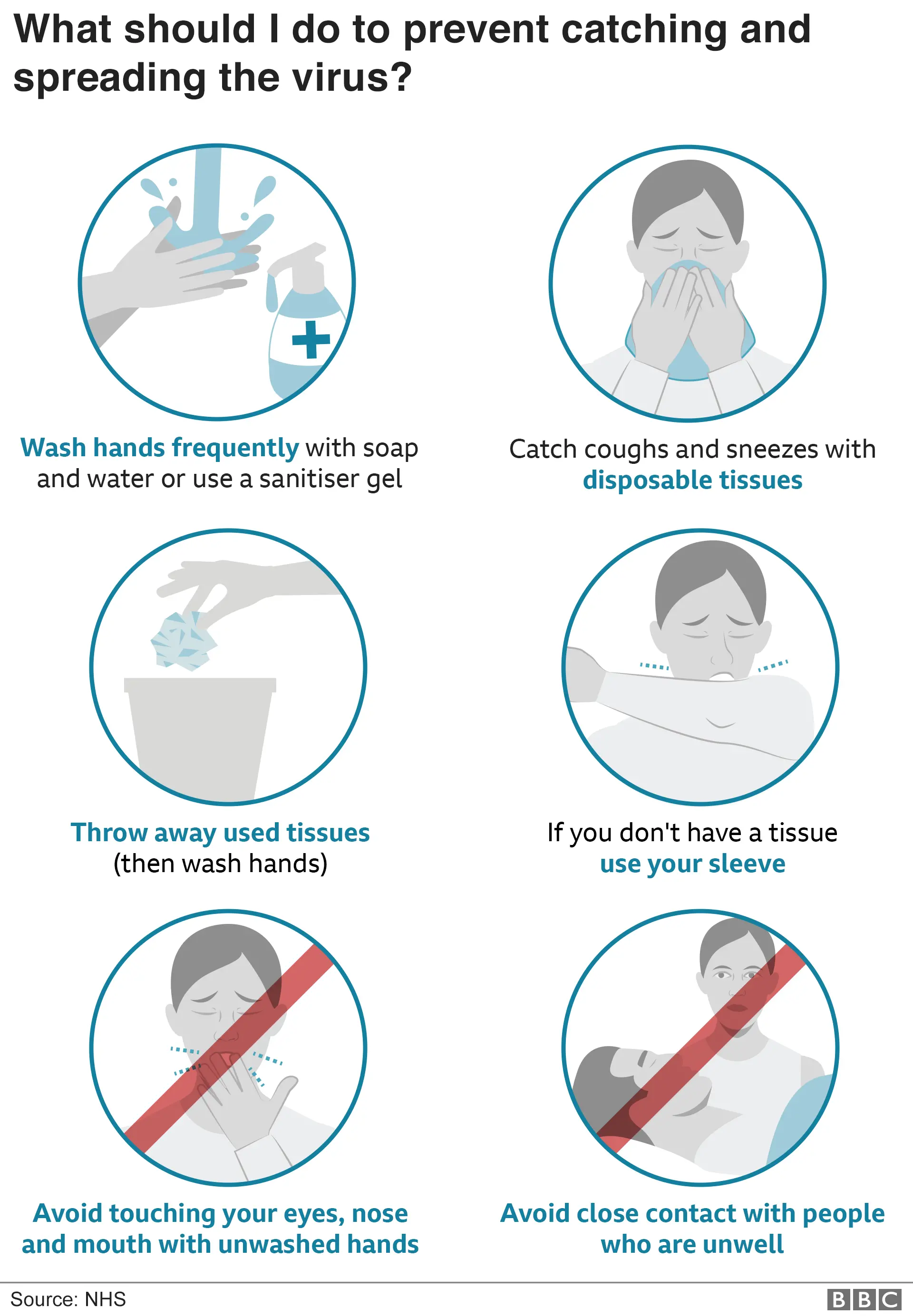Coronavirus: South Korea sect leader to face probe over deaths
The leader of a religious sect in South Korea will be investigated over some of the country's coronavirus deaths.
The city government of the capital Seoul has asked prosecutors to charge Lee Man-hee, the founder of the Shincheonji Church, and 11 others.
They are accused of hiding the names of some members as officials tried to track patients before the virus spread.
South Korea is battling the worst coronavirus outbreak outside China.
The country has reported 3,730 cases and 21 deaths so far. More than half of all infections involve members of the Shincheonji Church of Jesus, a fringe Christian group.
Authorities say Shincheonji members infected one another in the southern city of Daegu last month, before fanning out around the country.
One senior member, Kim Shin-chang, told the BBC's Laura Bicker that the church was "very sorry for causing concern".
He admitted that some church members had been afraid to reveal their identities but said the church had now revealed all of its information, including all its locations and members.
"We were worried about releasing this kind of information because of the safety of our members, but we believe right now the most important thing is to fully cooperate with the government," he said.
What's happening in South Korea?
On Sunday the Seoul City government filed a legal complaint to prosecutors against 12 leaders of the sect. They are accused of homicide, causing harm and violating the Infectious Disease and Control Act.
All 230,000 members of the church have been interviewed. Nearly 9,000 said they were showing symptoms of coronavirus.
A 61-year-old female member of the sect who tested positive for the virus was among the first to be infected.
She initially refused to be taken to a hospital to be tested and is known to have attended several church gatherings before testing positive.
The sect's leader, Lee Man-hee, claims he is the Messiah. He has also been tested for the virus and is awaiting the results.
Roman Catholic churches remain closed, major Protestant groups have cancelled Sunday services and all Buddhist events have been called off.

Anger grows over sect's response

Growing anger over the sect's handling of the outbreak has sparked a petition calling for the church to be disbanded. Nearly 1.2m people have signed it.
This investigation has been sparked by Seoul City Mayor Park Won-soon, who urged the Chief Prosecutor to detain the sect leader.
He warned that he would request a criminal investigation for homicide by wilful negligence and, on Sunday evening, he filed the claim with the prosecutor's office.
But this does not mean the church leaders will face murder charges. It means prosecutors will have to look into the case.
Once prosecutors have finished their investigation they will decide which charges, if any, to bring against the sect.

Who is Lee Man-hee?
Lee Man-hee, 88, claims he is the second coming of Jesus Christ and identifies as "the promised pastor" mentioned in the Bible.
He founded the Shincheonji Church in 1984. In Korean, Shincheonji means "new heaven and earth".
The group is considered a cult by many. Mr Lee's followers believe he will take 144,000 people to heaven with him.
The church says it has more than 20,000 followers outside of South Korea including in China, Japan and areas of Southeast Asia.
The group is known for packing its followers tightly together during services. Glasses, necklaces and earrings are reportedly banned from services.

What do I need to know about the coronavirus?
- WHAT ARE THE SYMPTOMS? A simple guide
- WAYS TO PREVENT CATCHING IT: How to wash your hands
- WHERE ARE WE WITH A VACCINE? Progress so far
- A VISUAL GUIDE TO THE OUTBREAK: Virus maps and charts
- WHAT DOES IT MEAN FOR MY HOLIDAY? Your rights as a traveller

What about the rest of the world?
More than 85,403 cases of the new coronavirus have been confirmed in over 50 countries, according to the World Health Organization (WHO).
The global death toll is more than 2,900. The vast majority of infections and deaths are in China.
On Sunday, Australia and Thailand also recorded their first fatalities from the coronavirus.
A 78-year-old Australian man died after being infected on the Diamond Princess cruise ship in Japan last month.
Thailand, which has had 42 cases of the virus, said a 35-year-old man who died was also suffering from dengue fever.
In Paris, the Louvre museum did not open on Sunday. The museum said on Twitter a meeting was being held on the public health situation and "the museum cannot open at the moment".
France has banned all indoor gatherings of more than 5,000 people, as part of efforts to contain the coronavirus outbreak.
- The US on Saturday reported the first death in the country, in the state of Washington. Officials said the patient was a man in his 50s with underlying health conditions
- Iran reported 385 new coronavirus cases on Sunday, bringing the total to 978 so far. The death toll rose to 54
- Italy - the worst-hit country Europe - says it will introduce measures worth 3.6bn euros (£3.10bn) to deal with the economic impact of the outbreak



Have you been affected by the coronavirus? Or do you have any information to share? Get in touch by emailing [email protected].
Please include a contact number if you are willing to speak to a BBC journalist. You can also contact us in the following ways:
- WhatsApp: +44 7756 165803
- Tweet: @BBC_HaveYourSay
- Send pictures/video to [email protected]
- Upload your pictures / video here
- Please read our terms & conditions and privacy policy
